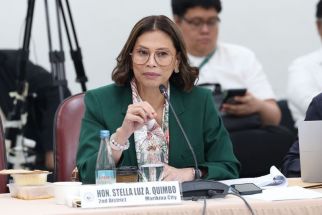Enrile and his criminal cases: could this plunder case be different?
MANILA, Philippines - Despite facing a slew of criminal charges in the past, Senator Juan Ponce Enrile has never spent more than a week in jail.
This plunder case, however, could change all that for him.
When Ferdinand Marcos and his family left the Philippines in 1986, then Aquino administration found that existing anti-corruption laws were inadequate to address the magnitude and amount that the Marcoses and their cronies allegedly stole from government coffers.
Owing to this, then Senator Jovito Salonga filed an anti-plunder bill. A House counterpart was submitted by then Rep. Lorna Yap.
Republic Act 7080 or the Anti-Plunder Law was enacted nearly 23 years ago on July 12, 1991.
Fast forward now and we see that three incumbent senators, among them Enrile, are imprisoned for facing plunder raps before the Sandiganbayan for allegedly pocketing multi-million in funds from the pork barrel.
Salonga was among those imprisoned by the strongman during the dictatorship. Enrile was Marcos' Defense minister then.
Following Marcos' ouster, Salonga became Senate president, while Enrile, who eventually withdrew his support to Marcos during the last crucial moments of the EDSA Revolution, was accused of masterminding the most serious attempt to overthrow Corazon Aquino.
It is also interesting to note that Salonga was the principal author of the Anti-Coup d'etat Law, enacted in October 1990 following the successive attempts by certain section of the military to oust Aquino from power. Enrile was charged in court for allegedly aiding coup plotters against Aquino.
Among others, Enrile also faced a graft case over alleged behest loans granted by the United Coocnut Planters Bank during the Marcos regime. The case was dismissed in 2012 by the Supreme Court as it was filed beyond the prescriptive period of 10 years.
The case stemmed from the grant of UCPB of not more than P500 million to the United Coconut Oil Mills Inc. (UNICOM). in 1979. UCPB's board members then included Enrile and businessman Eduardo "Danding" Cojuangco Jr.. However, both Enrile and Cojuangaco were also UNICOM's members of the board then.
The graft cases, however, were only filed in 1990 and were bailable.
In 2001, Enrile was also charged with rebellion for allegedly plotting to overthrow then President Gloria Macapagal-Arroyo.
Although government prosecutors argued that rebellion was a capital offense, the Supreme Court allowed Enrile to post bail on the ground of weak evidence presented by Enrile.
For this plunder case, however, the Sandiganbayan would have to go through the voluminous documents that prosecutors filed to support their case against Enrile.
In the plunder case against former president Joseph Estrada, it took years before the Sandigangbayan was able to issue a resolution on the motion for bail of the accused - this despite the eventual acquittal of Estrada's co-accused in the case - Jinggoy Estrada and lawyer Edward Serapio.
- Latest
- Trending


























